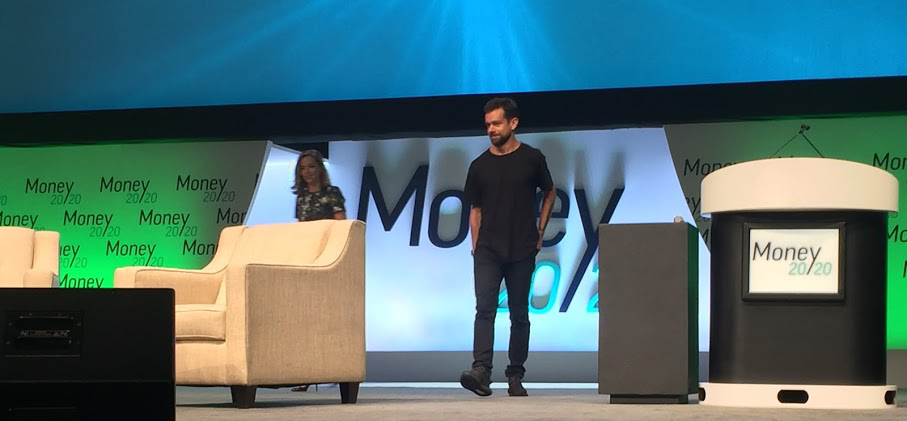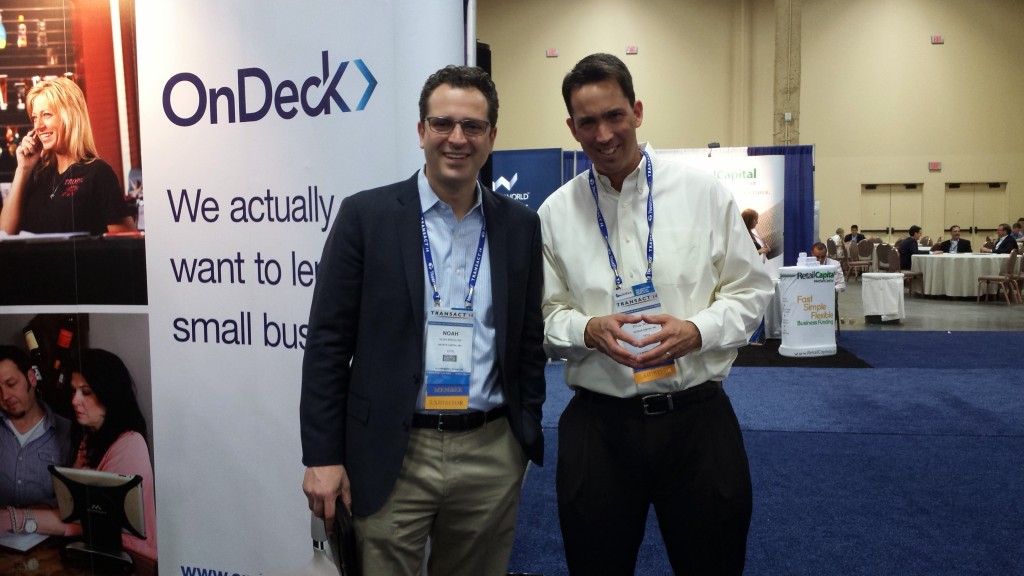Analysis
As OnDeck’s Stock Hits Record Low, Is There a Renewed Confidence in the Broker Channel?
November 6, 2016 OnDeck traded below $4 on Friday, a new all-time low that came in the wake of the company’s earnings announcement just the day before. Apparently, the company’s record-breaking $613 million in quarterly originations was not the assurance that investors were looking for.
OnDeck traded below $4 on Friday, a new all-time low that came in the wake of the company’s earnings announcement just the day before. Apparently, the company’s record-breaking $613 million in quarterly originations was not the assurance that investors were looking for.
Their report showed that more of the company’s loans are staying on their balance sheet and notably, there’s been an increase in the percentage of loans sourced from brokers. 27% of the dollars originated in Q3 came from brokers versus only 24.5% during the same period last year. Meanwhile, the raw number of loans originated by brokers is up from 18.6% to 20.2% in Q3 year-over-year. These are still substantially lower than previous years. For instance, brokers originated 41.4% of dollars in 2014, 56.54% in 2013 and 75.1% in 2012.
OnDeck refers to brokers as “funding advisors” in their reports, with company CEO Noah Breslow noting that this channel has grown 40% year-over-year, almost twice as fast as their direct and strategic channels. Analysts took note and Brian Fitzgerald from Jefferies asked why this was occurring on the morning call. Breslow responded by saying that it wasn’t due to any intentional reallocation of resources among the channels.
“So at any given quarter you may see a push/pull on the relative growth rates of the channel but I would say that we’re not sort of allocating resources or dollars between channels and the channels really are competing for resources internally. So I think the dynamic in funding advisors frankly, is a positive. We took that channel down last year, we did a pretty aggressive recertification. So we’re working with a lot fewer partners than we did a while back and on the flip side, those partners are higher quality and we’re seeing better originations now from them; and we’ve really optimized our conversion rates with a number of those partners. So we feel we feel pretty good about that.”
Also discussed on the call was OnDeck’s partnership with Barbara Corcoran, in which it was said that the company is sending out direct mail using her name and likeness to promote the company. Her TV commercials have already been making the rounds.
And just as signing on Shark Tank stars as partners probably doesn’t come cheap, Breslow suggested that the industry competition had really been narrowed down to the players who had already made hundreds of millions of dollars in loans.
“I think it’s fair to say that the very early stage start-ups or the subscale players are increasingly having a little bit more trouble competing, so we are seeing the preponderance of some of the marketing activity coming from folks who are a little bit larger in scale. And my sense is that continues and that’s going to consistent with the overall trends that people have seen. So the folks who are buying marketing at this point are folks who have loaned hundreds of millions of dollars as opposed to tens of millions of dollars, and I think the VC environment for these types of companies remains pretty challenging.”
Funders Prep for the Holiday Rush
November 1, 2016
As the year draws to a close sending everyone into a dizzying holiday frenzy, funders are prepared to fire on all cylinders to fuel their retail customers with cash.
The last quarter is crunch time for funders alike, who start preparing months in advance — designing new products, marketing and selling them. deBanked spoke to a few to find out what business looks like at this time of the year and what’s in store for 2017.
For some, Christmas comes in August
At South Dakota-based Expansion Capital Group, the holiday prep started as early as August. “We think demand is going to be very strong and to accommodate for it, we started 60 days early,” said Marc Helman, director of strategic partnerships. The company launched four new products in August for a wide spectrum of borrowers — longer term products for existing customers and starter offers for new companies and those with challenged credit.
Since the demand peak is cyclical, most funders who have been around a while have the drill down to a science. For NYC-based funder Hunter Caroline, demand spikes up close to the tax extension period, in September and October. “We sit down with our marketing team, see which clients ramp up this time of the year and focus our sales efforts in that direction,” said Cody Roth, managing partner at Hunter Caroline. During the holiday season the company turns its attention to customers in mom and pop retail, restaurants, liquor stores and gift stores in small towns.
“We weigh a lot into seasonal businesses and have certain hybrid programs,” Roth said. “We collect a little bit more during the busy season and keep it down during the slow time.” For this year specifically, the two-year-old firm is pushing invoice factoring, purchase order financing and unsecured loan products apart from its usual business loan offering of up to $4 million for 24 months.
Plan, pilot, pivot
Q4 is also the time when companies plan and strategize for the year ahead. And for loan marketplace Bizfi, a lot of changes are in the offing. The company appointed John Donovan, a 30-year veteran in the payments and alternative finance industry as its new CEO. And while on track to approach nearly $600 million of fundings this year, Bizfi also decided to cut ties with some non-performing ISOs to increase efficiency. “We just told around a hundred sales offices we could not do business with them anymore to use resources for our own funding channels that have better conversion rates,” said Stephen Sheinbaum, founder and president of Bizfi.
Holiday Hangover
The holiday season is arguably one of the busiest times of the year for merchants, but it doesn’t have to be so for funders. Jason Reddish, CEO of New Jersey-based Total Merchant Resources advises all his clients to take the money when they don’t need it, asking clients to borrow early, put away the money and by November, have the capital pay for itself through the peak season. “The oldest problem with credit is that you get as much as you want when you don’t need it,” Reddish remarked. “You have access to cheap and the most flexible money when you don’t need it.”
The company tries to structure deals that way for some of its retail clients who see high holiday demand.“We see a pretty big spike going into the holidays and then there is a holiday hangover where they are absorbing all the money they borrowed,” Reddish remarked. “Until the hangover wears off in February and we get busy again.”
All things considered, funders are on their marks for the holiday. Will it be bright for them?
It’s Not About Replacing Banks, Square CEO Says
October 30, 2016
It’s not about replacing banks, it’s about making financial services more accessible, said Square CEO Jack Dorsey in regards to what his company and others in the fintech space are doing. During his fireside chat-style address at Money2020, he bemoaned chipped card transactions for being so slow while defending their decision to go public when they did.
“It took us a long time to get [transaction times] down to under five seconds,” Dorsey said. Their goal is to get it down to 3 seconds, which is 7 seconds faster than today’s industry average. The payments CEO who is also the CEO of twitter, appeared to empathize with consumers on long wait times with chipped cards. People aren’t happy,” he said. “It’s really, really, really slow.” While more security is good, he argued that it has to be complemented by a frictionless experience for consumers.
Square Capital, their lending division, was hardly mentioned during his time on stage, which seemed more a consequence of his time allotment than its relative importance. The company funded $189 million to their small business customers in the second quarter. “Our goal is to make sure we’re helping our sellers grow,” Dorsey said. “As they grow, we grow.”
When asked if the timing of their IPO last November was the right choice, Dorsey said that going public should be viewed as an enabler, not the goal. “It’s an investment vehicle,” he argued while standing by their decision. Notably, compared to OnDeck and Lending Club, Square is the only one of the bunch to be currently trading above its IPO price. The stock recently closed at $11.15, up 24% from their $9 IPO on November 19, 2015.
For Lending Club: Downturn Readiness, a $1 Trillion Opportunity and No Origination Fees?
October 26, 2016
The Lending Club that presented at Money2020 this week was not the same Lending Club of years past. Not only is keynote speaker Scott Sanborn a different kind of CEO than his predecessor Renaud Laplanche but also the regulatory environment in which he must govern has changed. In the era of government interest, Sanborn told a huge conference audience that the company thinks about two things, regulation and downturn readiness. In that regard, they sounded very much like a bank.
But there was good news too. “I remain very bullish about the future,” Sanborn said. That’s in part because the company announced earlier that they were entering the $1 trillion auto finance market with a refinancing product.
What’s noteworthy is that auto refinance borrowers will pay no origination fees to Lending Club, a stunning departure from the 1% – 6% origination fees charged on their personal loans. One can’t help but wonder if that move was a response to new competition, namely Marcus (operated by Goldman Sachs), whose new personal lending platform charges no-late-fees, no-origination-fees, nor any fees at all outside of interest charges. While Marcus is not offering auto loan refinances in their initial rollout, Lending Club may be using this market to try and master the no-origination-fee model to compete against Goldman Sachs and any other new bank entrants in the future on every playing field.
Grandpa Breslow and What’s in the Deck for OnDeck
October 25, 2016At Money2020, Lendio CEO Brock Blake shared a joke that was made backstage about OnDeck’s CEO, Noah Breslow. “He’s the senior citizen of the industry,” he told a public audience, which referred to how long OnDeck has been around. It’s a label that Breslow lightheartedly embraced on an SMB lending panel he participated in on Tuesday morning.
Just a day earlier, deBanked met with executives from OnDeck, including Breslow to speak among other things, a collaborative initiative to codify business loan disclosures. APRs are among one metric they have recently agreed to display on their contracts, though in fairness they already did that on their line-of-credit product and on all of their loan products in Canada, the company asserted. While they don’t expect it will necessarily increase or reduce borrower interest, they believe that it may help a prospect make comparisons in what has become an increasingly competitive, yet fragmented market. “The use-case for the borrower isn’t changing,” Breslow said.
 OnDeck will remain focused on small businesses as the customer and there are no plans to venture into mortgages or student loans like several of their counterparts in consumer lending. There’s also no plans to follow SoFi and integrate a dating feature into their mobile app. Instead their mobile app offers a frictionless experience for their existing line-of-credit customers to draw funds or make payments.
OnDeck will remain focused on small businesses as the customer and there are no plans to venture into mortgages or student loans like several of their counterparts in consumer lending. There’s also no plans to follow SoFi and integrate a dating feature into their mobile app. Instead their mobile app offers a frictionless experience for their existing line-of-credit customers to draw funds or make payments.
The JPMorgan Chase-OnDeck partnership is still in the “initial rollout,” according to Breslow, despite the deal being announced almost a year ago. Metrics such as the number of loans originated through the arrangement have not been disclosed, but for the record, it’s restricted to customers that are applying for a loan online, not those applying in person at a Chase branch.
On the SMB lending panel, Breslow and others asserted that their initiative to be more transparent is not about encouraging business lending to be regulated like consumer lending. “If we regulate commercial lending more like consumer, ultimately less capital is going to flow, when the goal should be to get more capital to flow,” he said. Wise words from an industry senior citizen.





























